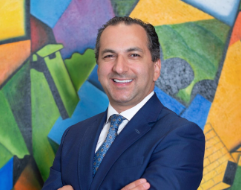
If you need to lose weight for your health and longevity, you may be exploring your options. Weight loss surgery like that which is performed at Soma Weight Loss is an effective long-term solution. You may have also heard of medical weight loss, which is weight management with help provided by medical providers. Let’s take a look at how these types of weight loss methods compare and how to decide which one is right for you.
Weight Loss Surgery
Weight loss surgery provides substantial, reliable results. Because weight loss surgery involves a physical restriction on the body, average quantifiable weight loss results are expected. Depending on the surgery, patients can expect to lose around one to two pounds a week, or up to 40 percent of excess body weight within six months after surgery.
- What it is: Weight loss surgery is a surgical procedure that restricts the amount of food the stomach can hold, and also causes malabsorption of nutrients.
- Who qualifies? To qualify for weight loss surgery, patients must have a BMI of 40 or greater, or be more than 100 pounds overweight; or have a BMI of 35 or greater and have at least one or more obesity-related co-morbidities (like diabetes or hypertension). In either case, the patient must have been unable to achieve a healthy weight for a significant period of time with previous weight loss efforts. A consulting surgeon will determine whether or not the potential patient may receive the surgery.
- What the process is like: There are several different types of weight loss surgery. At Soma Weight Loss, we offer four: gastric balloon, gastric sleeve, Lap-Band and gastric bypass. In gastric balloon surgery, a soft silicone balloon is inserted into the stomach. In gastric sleeve surgery, 80 percent of the stomach is removed. In Lap-Band surgery, a hollow tube is placed around the stomach. In gastric bypass surgery, the stomach and small intestine are divided.
- How long does it take? The surgical procedure takes about one to four hours, depending on the type of surgery that is performed. Patient recovery in an aftercare facility takes 24 hours, and then full recovery can take several days to several weeks. Within a week after surgery, most patients are able to return to work, though physical activity will be limited until full recovery.
- What happens after surgery? For weight loss surgery to have effective long-term results, patients must commit to a nutritious diet plan. Eating too much can expand the stomach and negate the results of the surgery. Types of food that can be eaten after surgery will range from a liquid diet immediately after, to small portions of solid food after recovery. Soma Weight Loss recommends weight loss surgery support in the form of weight loss support groups, so patients can encourage each other and stay on track. Patients may also meet with the surgeon throughout the first year after surgery for progress evaluation.

For patients who qualify and are committed to weight loss by adopting healthy lifestyle choices, weight loss surgery can be a beneficial solution.
Medical Weight Loss
Medical weight loss consists of weight loss efforts that are supervised by medical professionals. Medical weight loss treatments are tailored to the individual, so results and methods vary.
- What it is: Medical weight loss is the management of health, diet and exercise under physician supervision.
- Who qualifies? Who qualifies for medical weight loss programs depends on the program and physician. Typical qualifications include having a BMI of 30 or higher (being obese) or a BMI of 27 or higher (being overweight), as well as a medical issue like diabetes or high blood pressure.
- What the process is like: Baseline health measurements may be taken by drawing blood or using comprehensive metabolic testing or medical diagnostics to gauge factors like body fat percentage or cholesterol levels. Exercise and nutrition habits are evaluated, and improvements are recommended. Sometimes certain foods will be restricted, such as high-carb items like pizzas or pasta. Other times, focusing on diets rich in fiber or diets that use meal replacement shakes will be recommended. It all depends on the physician or program. Psychological coaching so that patients are able to effectively fight cravings and enjoy healthier food choices is also often a component.
- How long does it take? Healthy weight loss in medical weight loss programs ranges from 1 to 4 pounds of weight loss per week, depending on body weight.
- What happens after weight loss? After a patient’s goal weight loss is achieved, the patient transitions to a maintenance program that continues to focus on nutritious foods and an exercise plan that the patient enjoys and can maintain.
Some medical weight loss programs include regular meetings with a physician, while others recommend that patients stay at a resort or facility for a certain amount of time in order to immerse themselves in a new health program. Talking with a primary care provider can be a valuable first step in finding a medical weight loss provider to fit a certain lifestyle.
Which Is More Effective?
Both weight loss surgery and medical weight loss require dedication to a healthy lifestyle transition in order to be effective long-term. If you qualify for weight loss surgery and are not sure which to choose, consider the following:
- The New York Times reports patients who have had weight loss surgery gain long-lasting physical, emotional and social benefits compared to those who have not. Weight loss surgery patients are more likely to rate themselves as healthier and are less likely to report problems with issues like pain, mobility and depression. Physical benefits weight loss surgery provides include normalizing blood sugar and blood pressure and curing sleep apnea.
- Medical News Today reports obese individuals who had weight loss surgery had a lower rate of all-cause mortality compared to obese individuals who used nonsurgical weight loss management.
- A study published in Medscape found that improvements in HDL cholesterol levels and other obesity-linked factors were greater in patients who underwent weight loss surgery compared to those who followed a medical weight loss program.

Multiple studies prove that weight loss surgery is effective, and many indicate that improvements in physical and mental health are consistently greater compared to nonsurgical procedures. If you qualify for surgery, weight loss surgery can be the more effective choice. Contact the Soma Weight Loss team to see if weight loss surgery is a fit for you.




